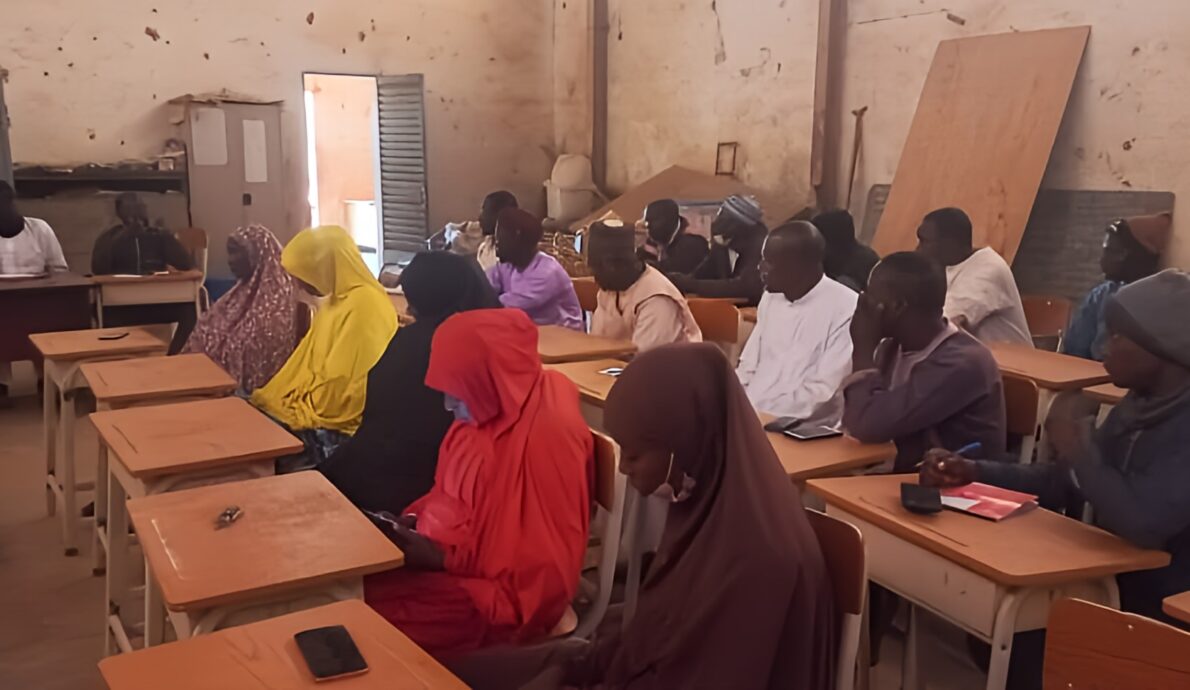Abigail Lieser, Grace Miles, and Rosemary Maher, University of Dayton
Development Challenge
Even in resource poor environments, the internet and associated information technologies have become an indispensable resource for communication, mobilization, information gathering, and learning. These powerful tools are viewed by many governments as threats to their existence. Our challenge is to understand the tools of government internet censorship and devise effective points of pressure for governments who employ internet censorship as well as protections for civil society that operates in restrictive environments.
Situational Context
The public protests and subsequent internet shut-down by the Iranian government in November 2019 drew international attention and condemnation. Using the internet “off-switch” is just one case of illiberal governments restricting access to information and the freedom to associate of their citizens. According to Access Now, 128 instances of internet shutdowns occurred in 2019 from January to July in at least 26 countries – 80 of which were in India. An internet shut-down is defined as an intentional disruption of internet or electronic communications, rendering them inaccessible or effectively unusable, for a specific population or within a location, often to exert control over the flow of information. It is essentially an off switch for all internet access in a given country or geographic region within a country. In general, governments have cited public safety or order as the main reason for an internet shutdown. However, our research on this phenomenon demonstrates that the reasons are more complicated than that internet restrictions spring up to counter even the most tepid criticism or seemingly innocuous political content.
In practice, internet shutdowns usually fall into two categories: partial and total shutdowns. A partial shutdown is more commonly seen and defined by the Internet Society as an instance when content blocking techniques are applied to restrict access to websites or applications, very often to block people from accessing information, publicizing controversial content, and/ or communicating to plan an organized civic action. These blocking techniques can include but are not limited to raising the cost of internet access, blocking websites, co-opting or creating alternative social media sites, monitoring citizen internet use, and intimidating known activists and their families for what is considered subversive activities. Typically, full internet shutdowns are associated with the most extreme authoritarian governments, however they are often seen in democracies as well.
Case Analysis: Rationale for Restricting Internet Access
Our team looked at countries across Asia, Southeastern Europe, and Latin America to identify what rationale is being used to justify partial or complete internet shutdowns by governments. By reviewing 10 different countries, we have found that most internet shutdowns happen for three main reasons: (1) in response to a revolution or social unrest, (2) a desire to consolidate political power, and (3) to protect the public from crime and negative influence on the internet. Examples of each of these cases follow.
Social Unrest
In countries like Ecuador and Nicaragua, the internet shutdowns were a reaction by their respective governments to anti-government protests and social unrest. In general, governments have cited public safety as the main reason for an internet shutdown. In October 2019 in Ecuador, the mobile network operator Claro suffered from severe outages lasting several hours. The outages were reported after President Moreno declared a state of emergency due to indigenous protests and deployed the army to regulate curfews across the country in response. Similarly, in the wake of public protests against the government in 2018, regional internet outages have been detected throughout Nicaragua. The timing of the internet outages corresponds with attacks on civilians*, suggesting the government is trying to restrict the flow of information in protest zones. Internet shutdowns in Nicaragua, Ecuador, Iran, and elsewhere are a consequence of the violence and repression that often follows citizen protests. While protests may lead to a decline in public safety, disrupting public protests is the most likely reason for government shutting down the internet.
Consolidation of Political Power
In Cambodia, government authorities sought to reduce political opposition and negative publicity by limiting, filtering, and silencing information on the internet. The Cambodian constitution grants freedom of press and speech, however there is an exception in Article 12 of the Law on the Press. This has led to restricted internet access and intense filtering of information by government authorities. In 2018, Cambodian government authorities increased physical and online surveillance of its citizenry in regard to their upcoming political election. They filtered the internet to erase political opposition websites and ensure internet users were speaking positively on behalf of the current political party. The situation in Cambodia confirms that governments use increased internet restrictions and internet shutdowns to consolidate political power.
Crime and Corruption
Internet shutdowns can also occur to protect from internet crimes and fraud. For example, the Serbian and Bangladesh governments chose to increase surveillance and additionally filter information to prevent cyber-violence. In 2018, Bangladesh passed a Digital Security Act, which contains legislation to silence online dissent, protesters, and opposition language. This was heavily contested among the public as it created a large barrier to internet freedom.
What We Learned
Internet shutdowns will likely continue in countries where there are increased levels of social and political contention or violence, and in states that have historically authoritarian regimes. As explained above, we have found three general categories for the cause of an internet shutdown: consolidating power, social unrest, and crime and corruption. Government and CSOs need to be aware of these categories prior to entry into a country, so they can prepare themselves for a possible internet shutdown.
* Update: The Netblocks research team recently published a study into encryption laws around the world to understand which governments place the heaviest restrictions on encryption:
The report can be accessed here – https://comparite.ch/encryption-laws




